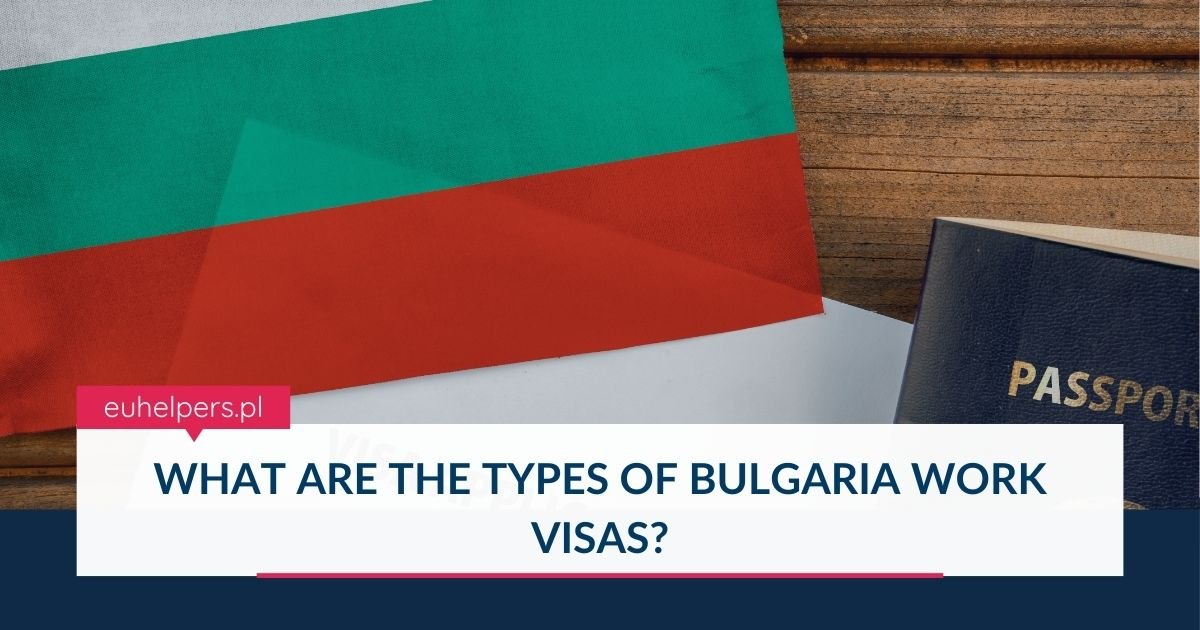Bulgaria offers a range of work visa options for foreign nationals seeking employment within its borders. Whether you're planning a short-term assignment, a seasonal role, or a long-term professional career, the country provides several legal pathways to live and work. These visas vary based on the nature and duration of employment, and each comes with its own eligibility requirements and procedures.
1. Type D Visa (Long-Stay Visa)
The Type D visa is the most commonly issued visa for foreigners seeking employment in Bulgaria for longer than 90 days. It is a mandatory first step for those intending to obtain a residence permit. This visa is typically granted to individuals who have already secured a job offer from a Bulgarian employer and received approval from the Bulgarian Employment Agency.
2. Seasonal Work Visa
The Seasonal Work Visa is tailored for temporary jobs in sectors such as agriculture, hospitality, and tourism. It allows foreign workers to stay and work in Bulgaria for a defined period, typically up to 90 days, but can be extended depending on bilateral agreements with other countries.
3. EU Blue Card
The EU Blue Card is designed for highly skilled non-EU professionals. It provides not only the right to live and work in Bulgaria but also facilitates easier access to employment and residency in other EU member states. Applicants must meet specific criteria, including a university degree and a job offer with a salary above the national average.
4. Single Residence and Work Permit
The Single Permit combines residence and work authorization for non-EU nationals employed by Bulgarian companies. Issued for a specific job and employer, it streamlines the process by eliminating the need for separate residence and work permits. It is valid for up to one year, with the possibility of renewal.
5. Intra-Corporate Transfer Permit
This permit is for employees of multinational companies who are being transferred to a Bulgarian branch or subsidiary. It applies to managers, specialists, and trainees, and typically includes family reunification rights for eligible dependents.
6. Freelance and Self-Employed Work Permit
Foreigners planning to work independently or run their own business in Bulgaria can apply for a freelance or self-employed permit. Applicants must demonstrate sufficient financial means, a viable business plan, and relevant qualifications or experience in their field.
7. Short-Term Work Permit
The Short-Term Work Permit is intended for temporary employment lasting up to 90 days within a 12-month period. This is suitable for project-based roles, short contracts, or temporary staffing needs, and requires prior approval from the Bulgarian Employment Agency.
Key Requirements and Application Process
Regardless of the visa type, most foreign nationals must:
-
Obtain a job offer or contract from a Bulgarian employer.
-
Receive approval from the Bulgarian Employment Agency (for most employment-based visas).
-
Apply for a Type D visa through a Bulgarian consulate or embassy in their home country.
-
Meet eligibility criteria, including documentation of professional qualifications, proof of accommodation in Bulgaria, and valid health insurance.
Each visa category has specific documentation requirements, processing times, and conditions for renewal or transition to long-term residency.
Bulgaria’s growing economy and strategic location within the European Union make it an appealing destination for international professionals, seasonal workers, and entrepreneurs. Whether you're a skilled specialist, a freelancer, or a temporary worker, there is a suitable visa pathway for your employment plans. Understanding the visa types and their requirements is essential for a smooth application process and a successful start to your career in Bulgaria.

